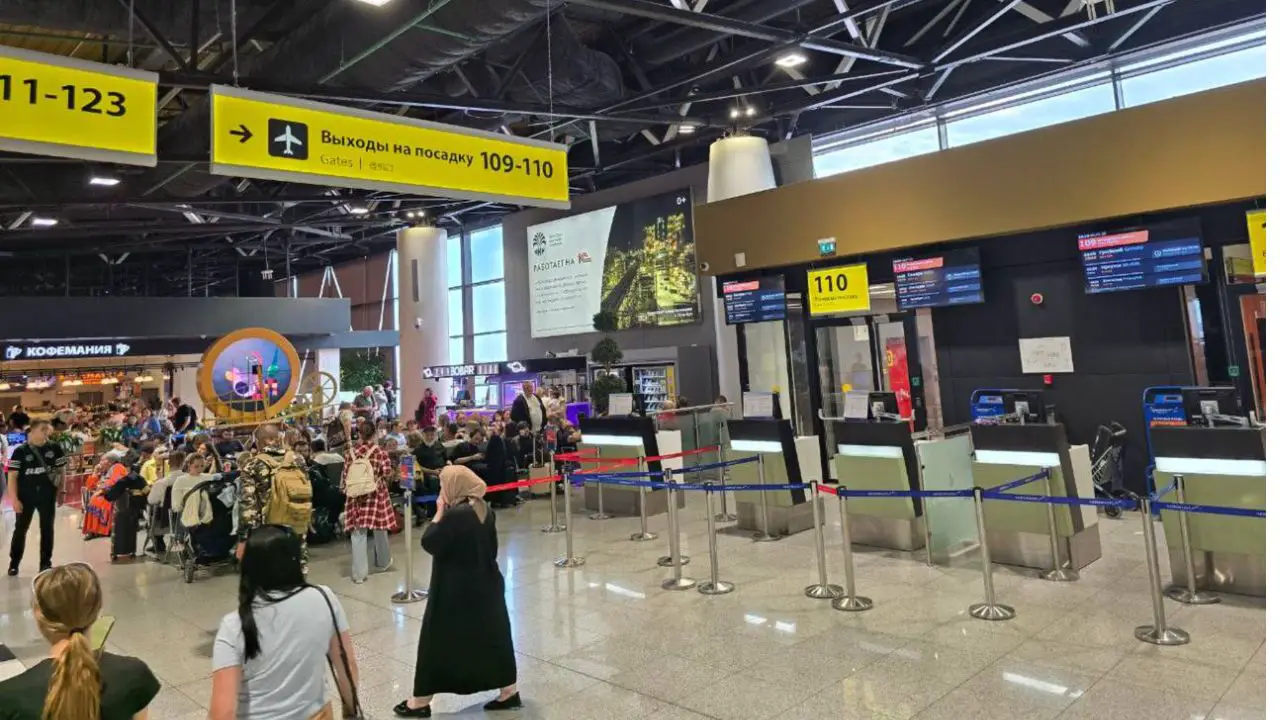Russian airports faced significant outages in early July 2025, resulting in the cancellation or postponement of thousands of flights at major centers such as Moscow’s Sheremetyevo, St. Petersburg’s Pulkovo, and Nizhny Novgorod’s Strigino airports. The abrupt cessation of air travel has resulted in various economic and political repercussions, such as the resignation of Russia’s transport minister in response to the increasing challenges that the country’s aviation sector is currently confronting.
Airport Disruptions Overview
Russian aviation authorities reported hundreds of canceled and diverted flights, with thousands more delayed, between July 5 and July 7, 2025. The disruptions resulted in a significant number of passengers being stranded and logistical challenges for airlines, which were compelled to arrange accommodations and refunds for tens of thousands of impacted travelers. Airlines and airport operators experienced substantial operational and financial distress as a result of the disruptions.
Context and Causes
The disruptions were predominantly attributed to drone incursions that targeted critical infrastructure, which resulted in temporary airspace restrictions and increased security measures, according to Russian officials. Flights were suspended to guarantee passenger safety as Russian air defense systems endeavored to intercept these aerial devices.
Simultaneously, the broader context encompasses the ongoing military conflict in the region, which has been characterized by the growing use of unmanned aerial vehicles (UAVs) by multiple parties. Drones have emerged as a prominent aspect of the conflict, complicating the security of civilian infrastructure through their use in reconnaissance and assaults.
Operating and Economic Consequences
Russia’s airways and associated industries have sustained substantial financial losses because of the cancellations and delays. According to industry analysts, the shutdowns are expected to result in immediate losses of billions of rubles, with further indirect costs anticipated as the situation continues to develop. The disruptions have also emphasized the vulnerabilities in Russia’s aviation infrastructure, which is confronted with various challenges, such as sanctions, fleet modernization constraints, and difficulties in aircraft maintenance.
Political Developments
Russian President Vladimir Putin dismissed Transport Minister Roman Starovoit subsequent to the crisis. The timing suggests that the aviation sector’s administration during the disruptions was the reason for the dismissal, but official statements did not specify. The former minister was discovered dead in his residence, with indications of suicide. In the midst of a complex and evolving environment, the transport ministry is under constant pressure to address security concerns and stabilize operations.
On July 7, 2025, President Vladimir Putin appointed Andrei Nikitin as the interim Minister of Transport in response to the dismissal of Roman Starovoit. Nikitin, who was previously the governor of the Novgorod region, was chosen for his extensive expertise in public administration and his recent work as Deputy Minister of Transport. It is anticipated that Nikitin’s professional background and expertise will help the ministry overcome its current challenges, which include the modernization and digitization of Russia’s transport infrastructure, as emphasized by the Kremlin. During his meeting with President Putin, Nikitin disclosed his digital transformation initiatives.
These initiatives encompass the reduction of cargo bottlenecks at border crossings and the transition to electronic transport documentation. The goal of these reforms is to improve the resilience, efficacy, and transparency of Russia’s transit sector in response to an increase in operational and security pressures. The appointment is interpreted as an attempt to reestablish stability and confidence in the ministry in the wake of persistent disruptions and sector-wide challenges.
Wider Consequences
The recent occurrences have served to emphasize the challenges that Russia’s civil aviation system encounters in ensuring consistent service amid elevated security threats and geopolitical tensions. In addition, the circumstance underscores the more extensive obstacles associated with safeguarding critical infrastructure in conflict zones, where the boundaries between civilian and military domains are becoming increasingly blurred.
The disruptions have resulted in substantial inconvenience and uncertainty for both travelers and businesses, while also raising concerns regarding the resilience of transportation networks during crisis situations.
In conclusion,
In July 2025, the disruptions at Russian airports were a multifaceted crisis that encompassed security challenges, operational difficulties, and political repercussions. Although drone activity and airspace restrictions have directly contributed to the suspension of flights, the situation has been further complicated by the broader geopolitical context and underlying structural issues within the aviation sector. The dismissal of the transport minister is a significant political response, underscoring the urgency with which Russian authorities regard the necessity of reestablishing stability and confidence in the country’s air travel system.
Official Website of Youtube Channel – Altitude Addicts
